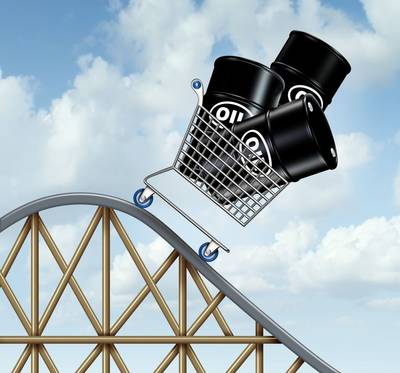DNV GL: Oil Demand, CO2 Emissions Probably Peaked in 2019
Global oil demand and carbon dioxide emissions probably peaked in 2019 as the COVID-19 pandemic will have a lasting impact on both, energy consultancy DNV GL said on Wednesday.
The Norway-based consultancy, which advises both petroleum and renewable energy companies on risk management and technology, said global energy use would be 8% lower in 2050 than previously expected due to the impact of the pandemic.
"Lasting behavioral changes to travel, commuting and working habits will also decrease energy usage and lessen demand for fossil fuels from the transport sector as well as from iron and steel production," DNV GL said in a statement about its research on the impact of the pandemic on oil demand and emissions.
"While we expect oil demand to recover next year, we think that it's likely that it will never reach the levels seen in 2019," Sverre Alvik, head of DNV GL's Energy Transition Outlook, told Reuters.
The International Energy Agency said on June 16, it did not expect oil demand to return to pre-pandemic levels before 2022 due to a slump in air travel.
DNV GL has previously predicted oil demand would plateau in 2022.
Growing skepticism about long-term global oil demand in a post-pandemic world is putting pressure on oil companies to revalue their assets.
Shell said on Tuesday it would write off assets worth up to $22 billion after the coronavirus crisis knocked oil and gas demand and weakened the outlook for energy prices.
Renewable energy is seen benefiting from the crisis, because when total energy demand falls, the cheapest sources, such as wind and solar, are preferred to fossil fuels, Alvik said.
While global CO2 emissions also likely peaked in 2019, the expected decline in future would not be steep enough to meet the Paris climate agreement goals, so other measures such as carbon capture and storage (CCS) and greater use of hydrogen were needed, DNV GL said.
"COVID-19 has shown that behavioral changes are indeed possible, and we can use this opportunity to make a change which is good for (the) climate," Alvik said.
(Reporting by Nerijus Adomaitis; Editing by Susan Fenton)













